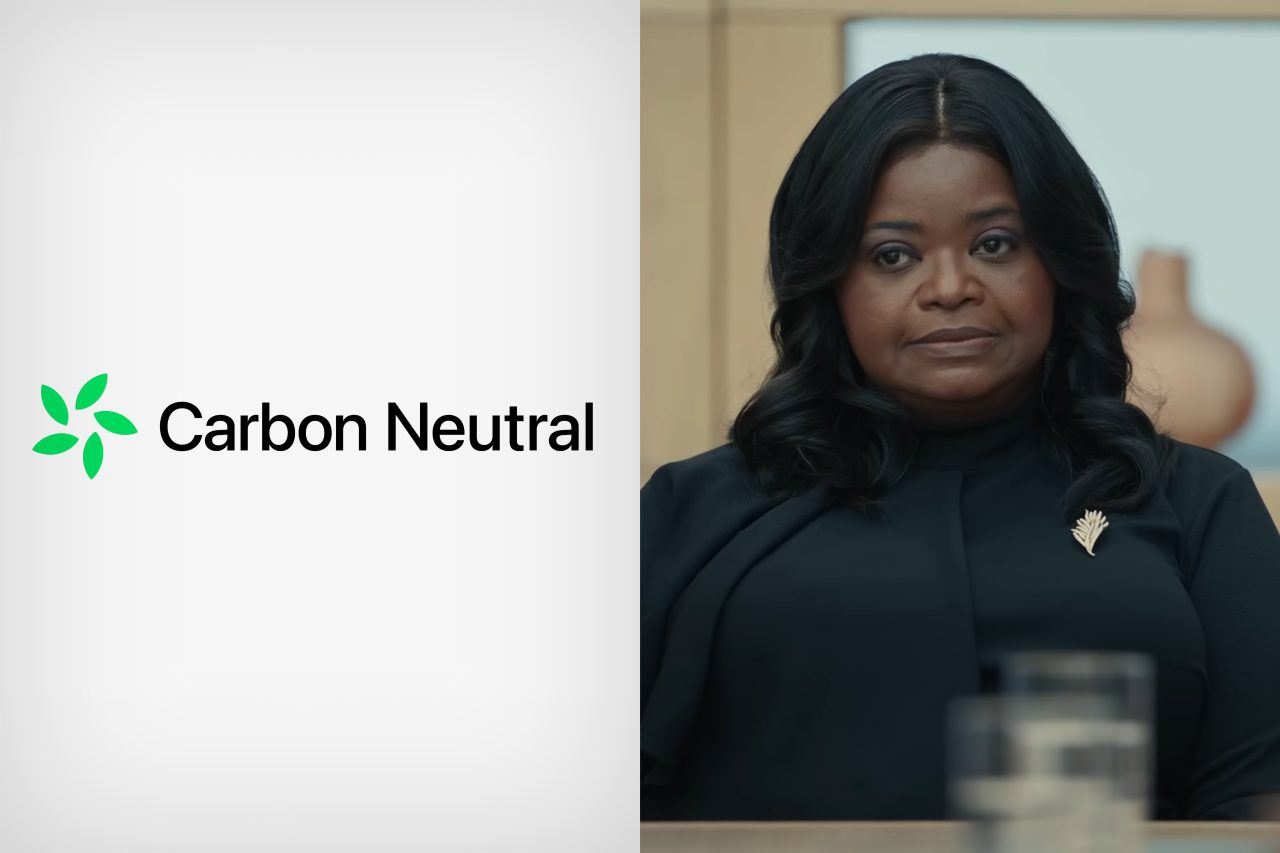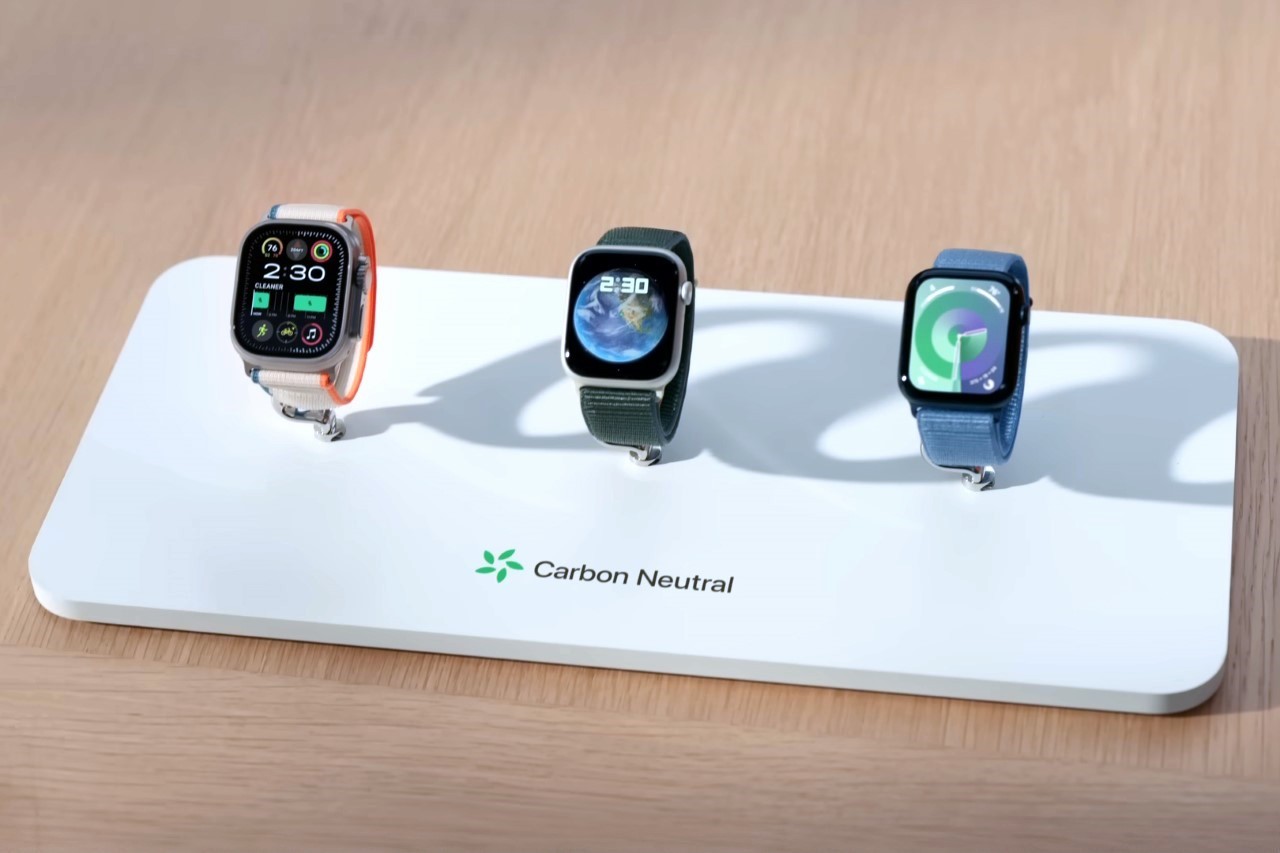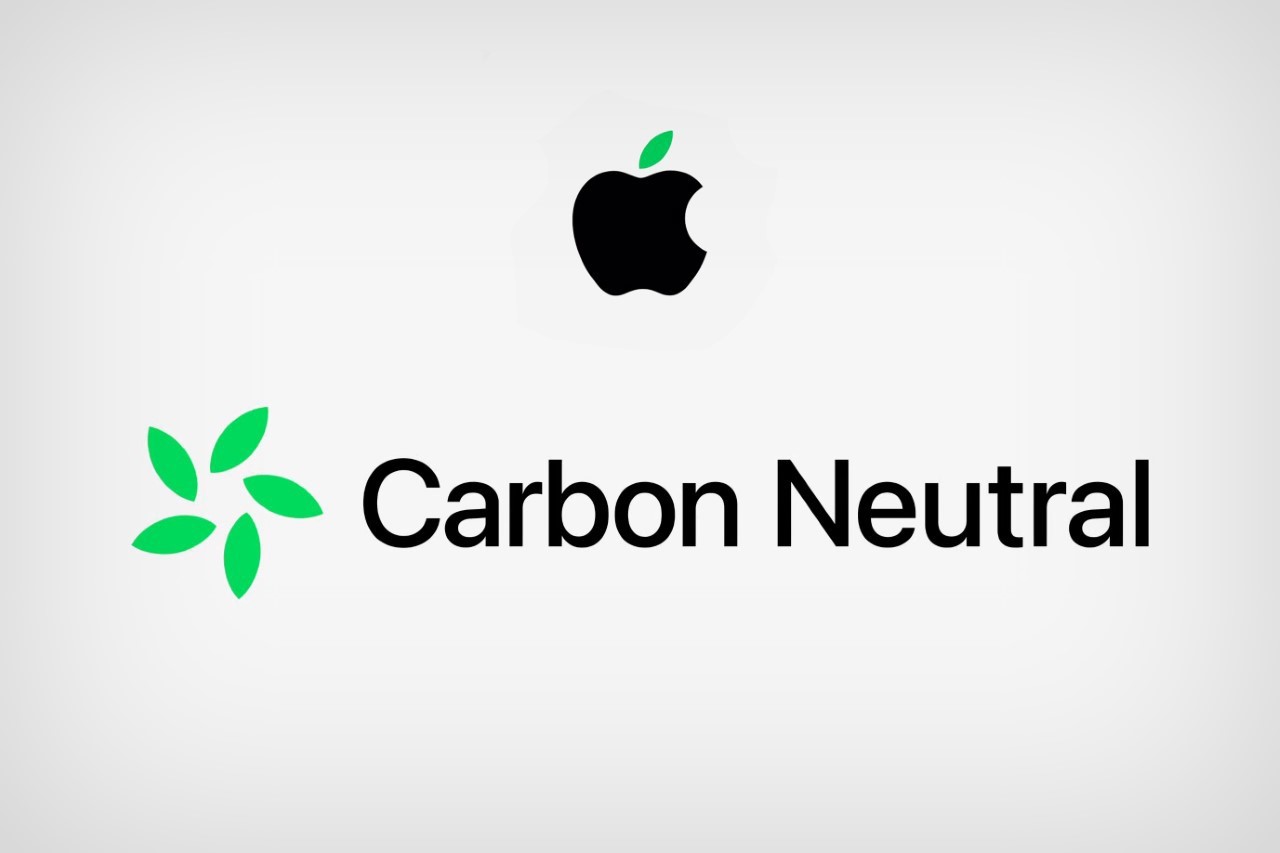Last night’s 80-minute keynote saw the launch of four new Apple products – the Watch Series 9, Watch Ultra 2, iPhone 15, and iPhone 15 Pro… but arguably the biggest focus of the event wasn’t on a product – It was on an initiative. Apple spent well over 20 minutes talking about its commitment to the environment, its focus on reducing its global impact, and even formally unveiling its ‘Carbon Neutral’ program.
The segment even had a 5-minute short film starring Octavia Spencer as ‘Mother Nature’ visiting the Apple HQ for a status report on their mission (how they got her to act in it despite the SAG AFTRA strike is a separate question entirely). It marked a unique shift for the company, which usually has spent more time in its keynotes talking about cameras or Apple’s unwavering approach to user privacy.
‘Carbon Neutral’ isn’t just Apple’s biggest climate initiative, it’s probably the biggest by any company in the world – and Apple clearly wants everyone to know that. The short film with Spencer (you can watch it above) was an informal way of letting people know exactly how much Apple’s doing to “permanently remove carbon from the atmosphere”. This pretty much influences every single part of Apple’s operations, from the energy used to run the building, stores, and server rooms, to the materials used in the products and their packaging (even down to ensuring their suppliers are carbon-neutral), and also the way the products are shipped by sea instead of by air. Apple additionally ensures its products have a high trade-in value, so there’s a better chance they’ll get recycled instead of thrown in the trash. It’s a complex system that they’ve executed pretty well, if we’re to take them for their word… and it shows how only a company as big and influential as Apple could have pulled it off. So what exactly IS Carbon Neutral?

What IS ‘Carbon Neutral’?
Tim Cook made a bold claim to make Apple carbon neutral by 2030, and to mark this journey, Apple has designed a new symbol that will now feature on product displays and packaging moving forward. A green flower created using the ‘leaf’ of the Apple logo, the Carbon Neutral mark indicates that a product has a carbon-neutral impact. Which means, for every unit of that product manufactured, Apple has already minimized its carbon footprint down to zero. Why Apple would do this is a layered question, but it’s the “how” that’s MUCH more interesting.
How is Apple Reducing its Impact?
Most of Apple’s products are made using recycled materials. The company’s invested billions of dollars in designing systems and robots that can disassemble old, damaged, or sub-par products with staggering efficiency. Almost every ounce of aluminum used in Apple’s gadgets comes recycled from a previous gadget. The company’s even committed to using 100% recycled cobalt on its iPhone 15 batteries, and 100% recycled copper in the logic board. New tech from flagship models makes its way down the chain to budget models as time goes by, ensuring nearly a decade’s worth of recycling and repurposing that saves the environment and saves Apple a whole tonne of money. The company even ensures its headquarters, stores, and server rooms run entirely on renewable energy, and that its suppliers operate using clean electricity.
The packaging for newer products is made smaller so as to efficiently ship larger quantities in the same space, and Apple’s also increasingly opting for sea-shipping rather than air to lower their emissions. The company is looking to eliminate plastic from its packaging by the end of next year, has effectively phased out the use of leather because of its climate impact, and claims to have reduced its water usage by 63 billion gallons (don’t ask me how much water Apple currently uses). Whatever carbon Apple DOES produce gets minimized by its initiatives, like planting forests in Paraguay and Brazil, restoring the mangroves in Colombia, and the grasslands in Kenya.

This year, the Apple Watch Series 9 and Watch Ultra Series 2 are the first ever products to come with the Carbon Neutral logo on them, signifying that up until the point that you buy them, they have zero climate impact.
Is it all Hype?
It’s worth noticing that all this comes at a time when Apple’s being forced to switch from Lightning to USB-C, and to adhere to removable battery protocols for their devices by the EU in the years to come. Apple’s AirPods are also known to be ridiculously difficult to recycle and absolutely impossible to repair, prompting this young YouTuber to design his own repairable AirPods Pro case. Some would also raise the point that all these initiatives get baked right into Apple’s pricing, which is significantly higher than other companies. In a way, Apple isn’t paying for these initiatives out of their own pockets… It’s passing the price onto the consumer, which most people seem ready to pay.
It’s easy to dismiss all this as posturing, and a lot of it probably is just that because Apple’s data is somewhat vague, to begin with… but it’s also a brilliant marketing tool to make Apple stand out even more against a backdrop of technology that can often be seen as ethically or environmentally corrupt. We’re increasingly learning about the harsh conditions of cobalt or rare-earth-mineral mining that help create the technology we so readily use, so Apple’s stepping ahead of it all to show that they still “think different” even after all these years.
That being said, even if it IS all hype, it’s hype in a good direction. Apple doesn’t operate within a void – how it operates affects the way the entire tech industry operates too. When Apple forces TSMC or any of its raw material suppliers to switch to clean energy, that means Google, Samsung, LG, etc. are also being positively affected by the decision. A switch to plastic-free packaging makes that particular manufacturing method and its adjacent materials available to other tech giants too. Sure, we can’t expect the entire technology industry to go carbon neutral by 2030, but Apple makes up a significant chunk of that industry – so its rising-tide effect definitely lifts all boats… although I wonder if other companies would be comfortable using Apple’s Carbon Neutral logo or its evaluation system!

The post Apple’s ‘Carbon Neutral’ Mission Explained: The Tech Giant’s Ambitious Plan for the Planet first appeared on Yanko Design.
0 Commentaires